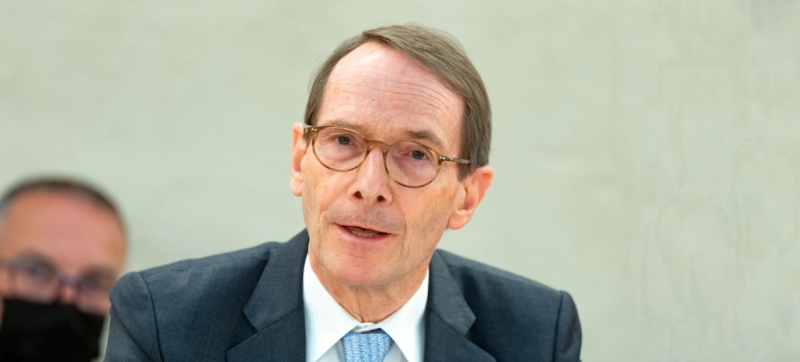
Head of the Commission on Ukraine Erik Møse Ukraine: UN Commission Finds New Evidence of Torture by Russian Authorities Human Rights
The Independent International Commission of Inquiry on Ukraine has found new evidence indicating widespread patterns of torture by Russian authorities against Ukrainian civilians and prisoners of war in the occupied Ukrainian territories and in the Russian Federation.
Systematic Torture
The wide geographical scope and prevalence of torture patterns indicate that the practice is considered acceptable and routine, and that those who use it do not fear punishment for their actions. This is what the Commission reports in its latest update to the Human Rights Council.
Russian authorities have used torture in the areas of Ukraine under their control, according to UN experts. New evidence confirms the Commission’s previous conclusion that torture is widespread.
Common Elements in the Use of Torture
The commission found additional common elements in the use of torture by Russian authorities, confirming previous findings on the systematic nature of these actions. For example, the practice of violent methods is widespread in places of detention in Russia where prisoners from Ukraine are held. It is also observed in several large penitentiary institutions in the occupied territories of Ukraine.
Read also:
UN Commission: Russian military in Ukraine ignores humanitarian law principles and human rights obligations
There is also evidence indicating the coordinated involvement of employees of specific services of the Russian Federation in torture in all places of detention.
Sexual violence
The next common feature is the systematic use of sexual violence primarily against men as a method of torture, which is observed in almost all of these places conclusions.
The Commission also takes note of the testimony of former prisoners about prison staff in the Russian Federation, which indicates orders for ill-treatment. In some places of detention, orders for ill-treatment were given by high-ranking representatives of the Russian authorities.
Serious Injuries and Mutilations
A civilian victim who was tortured for ten days told the Commission: “The worst thing is that the perpetrators did everything silently and professionally. That is how I understood that they tortured many people, and they did not even consider us human beings.”
These violations caused serious injuries and mutilations to many of the victims. Most of them emphasized the profound psychological impact of the experience on them and their families.
Some victims reported significant difficulties in reintegrating into society and rebuilding relationships with loved ones. They stressed the need for psychological and social support for both themselves and their families.
Attacks on civilian objects
The Commission also continues to document attacks with explosive weapons on civilian objects in populated areas, with devastating consequences. It investigated attacks that damaged medical facilities, cultural facilities, residential buildings and supermarkets in Ukrainian-controlled areas.
Shocks on energy infrastructure
Continuing its investigation into the Russian Federation’s large-scale attacks on Ukraine’s energy infrastructure, some of which caused power outages and affected millions of citizens, the Commission has uncovered new evidence of the impact of these attacks on the health and well-being of the population.
Power outages have had a particular impact on vulnerable groups. For example, older persons and persons with disabilities face difficulties accessing emergency shelters, limited access to vital medical devices, and increased isolation, significantly increasing their vulnerability.
Power outages have also disrupted online education, particularly affecting displaced children and children with disabilities who are more likely to rely on distance learning.
Further investigations
The Commission reiterated the importance of continuing investigations, identifying and holding those responsible accountable, and providing comprehensive support to those affected. It calls on all parties to cooperate and coordinate efforts on these important issues.
Independent Commission of Inquiry
The United Nations Independent International Commission of Inquiry on Ukraine is an independent body mandated by the United Nations Human Rights Council to, inter alia, investigate all alleged violations and abuses of human rights and violations of international humanitarian law, as well as related crimes, in the context of the aggression against Ukraine by the Russian Federation.
The Commission consists of Erik Møse (Chairman), Pablo de Greiff and Vrinda Grover.
